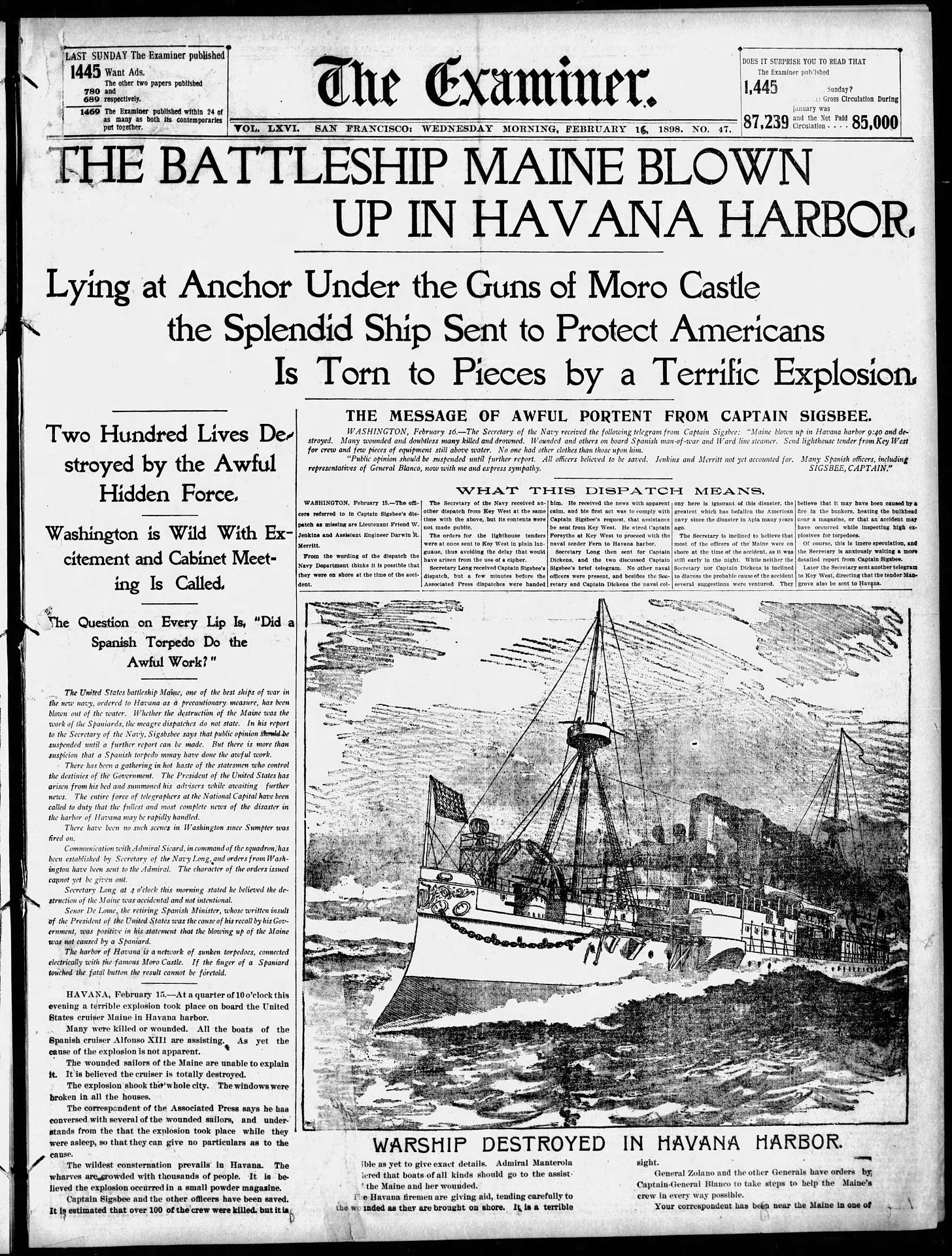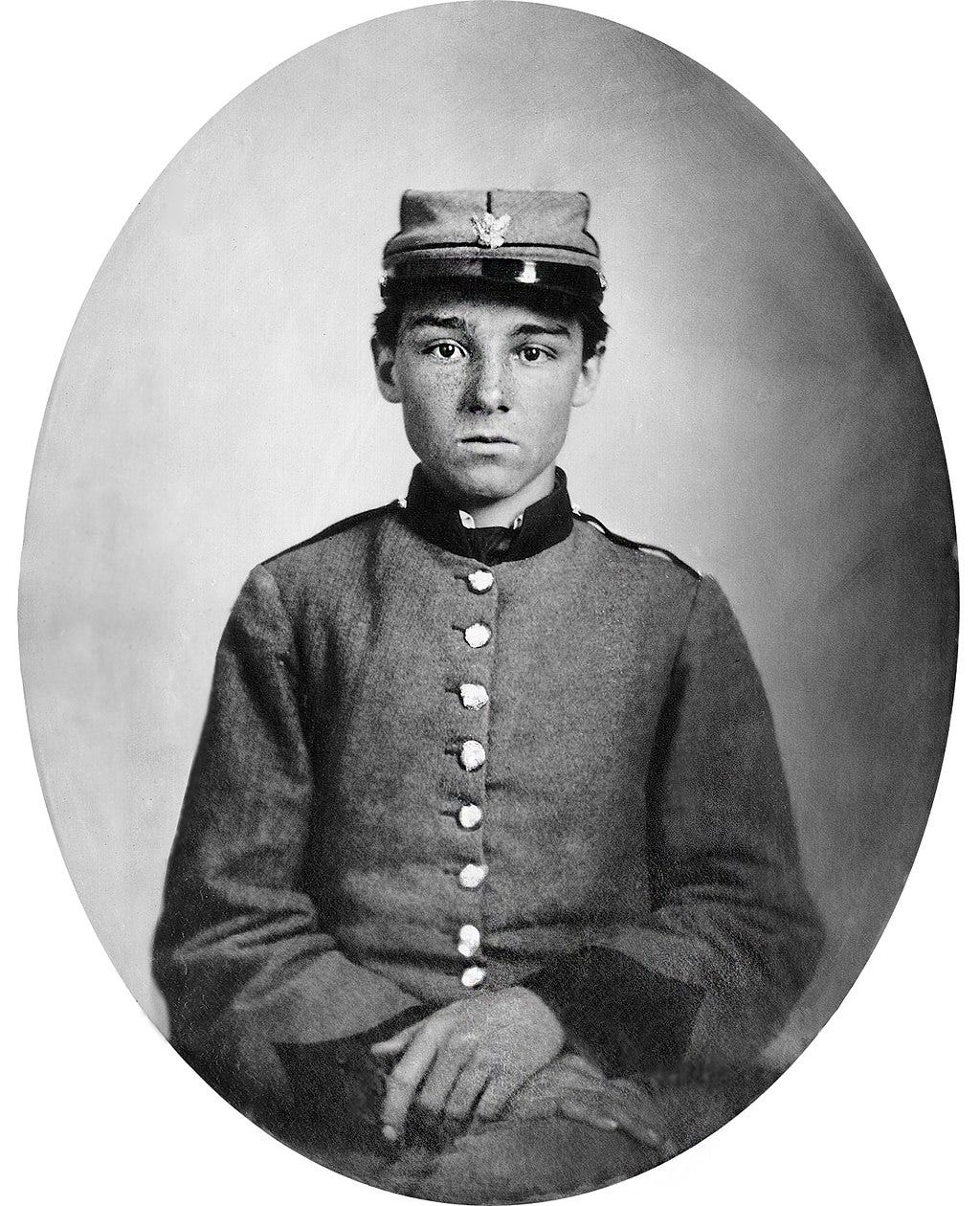Kids Taking the Battlefield: Did Your Underage Ancestors Serve in the Civil War?
My great-grandfather enlisted in the U.S. Navy at age 14. There is a chance your ancestors enlisted while being underaged, too.
About 700,000 children under 18 fought in the Civil War: 20% of all soldiers. Though difficult to specify, an estimated 100,000 soldiers were under 15.

On February 15, 1898, 35 years after the end of the Civil War, the USS Maine exploded and sank in Havana Harbor. No concrete evidence pointed to an attack by Spanish ships. Headlines from New York to San Francisco claimed it was intentional by morning. Chances are high that your American ancestors discussed the shocking conspiracy with friends.

The Spanish-American War broke out two months later, on April 21, 1898. In part, encouraged by the unexplained explosion of the Maine. It lasted four months, ending on August 13, 1898, with an American victory.
A month later, on September 12, 1898, my great-grandfather enlisted in the U.S. Navy. He was 14.

William Stockdale McCabe served as a private for six months. Why did he enlist? How did William undermine the age restriction? Did he run away from home?
It is hard to imagine he looked older than 18 when he was 14. When he was 34 and filling out a WWI draft card in 1917, he listed himself as “tall.” He could have been an abnormally tall 14-year-old and lied his way into service.

Somebody in your family tree might have enlisted in the military underage. If your ancestors lived in the United States for centuries, chances are high. Did your great-grandfather enlist in the Civil War? Did a great-great-great-granduncle run away and join the American Revolutionary War in 1775? Some American children even fought in WWI and WWII.
Tip: There are ways to find out if your ancestors fought in the U.S. Military or during the Civil War even if underage. Veterans and their spouses applied for pensions and headstone markers later in life. Crew lists exist for naval ships. Obituaries often mention military service. Even if your ancestor didn't serve in WWI or WWII, they might have filled out a draft card with intimate details! Their height, build, eye and hair color, occupation, birthdate, and more are waiting for you to find them.
Jack Palmer is a History and Psychology double-major at Duke University. I’ve done genealogy research since I was 10 and love writing about it for family, friends, and anybody else who might enjoy a blast from the past.


How do you find out if ancestors applied for pensions and headstone markers, a crew list, or obituaries? Ancestry?